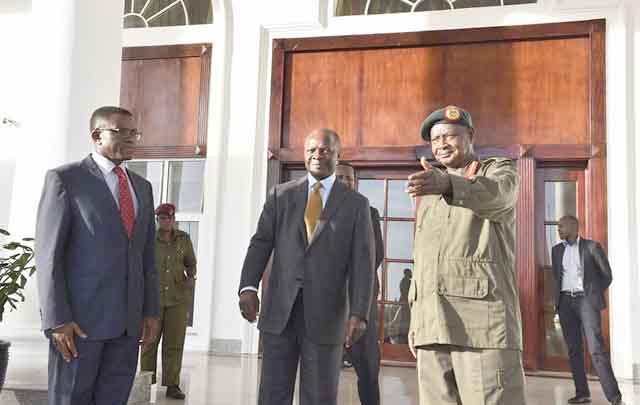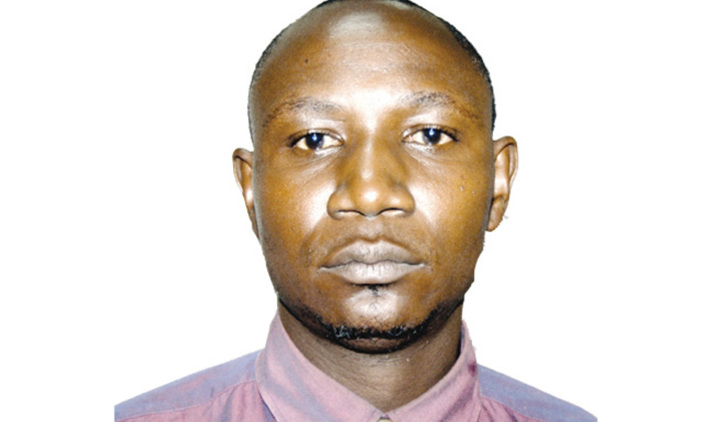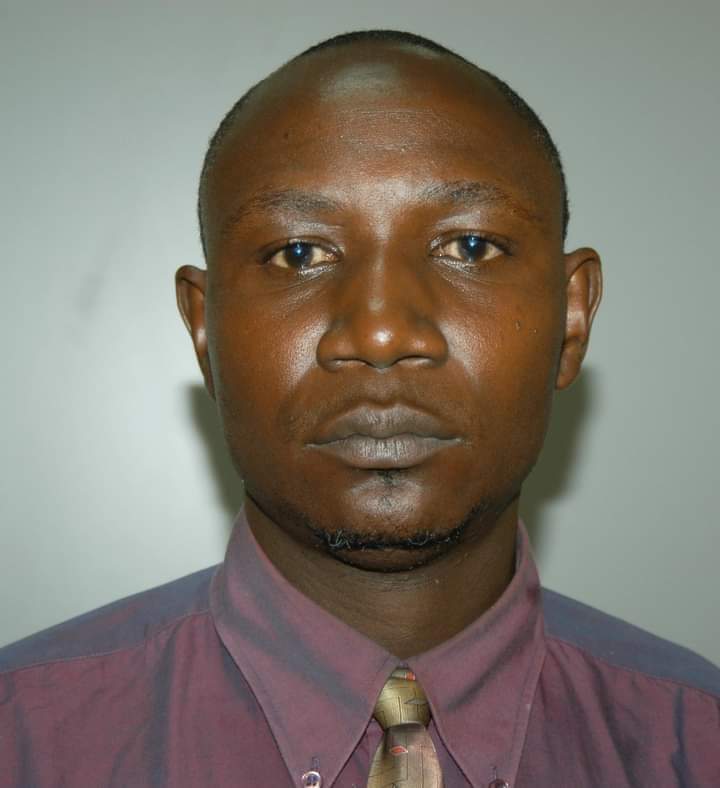By Ahmed Kateregga Musaazi
One of the living examples of the Precolonial nation states of Africa, is the Kingdom of Buganda.
Politically, Buganda was a highly centralized state with the Kabaka as an absolute monarch appointing a Katikkiro (Prime Minister) from the commoners as the royals (Abalangira) and clan leaders (Abataka) were barred from holding political offices.
One of the missionaries said that it was wrong to call the Katikkiro a Prime Minister comparing him to the British one who is democratically elected by Parliament’s Electoral College. He argued that the Katikkiro was like a German Chancellor, then, appointed by the Emperor like
Bismark was after the unification of Germany and was answerable to him.
Unlike Kabaka and Abataka, who are traditional/cultural leaders and hereditary, the Katikkiro and other ministers, and members of Lukiiko are politicians that can be “kulaba mu kamwa’ (criticized). County, Subcounty and Parish chiefs are civil servants or local administration staff. They can also be “kulaba mu kamwa.”
Buganda has had very powerful Katikkiros including Kayiira during the reign of Kabaka Suuna Kalemakansinjo and Mukaabya Walugembe Muteesa. According to a book “Abateregga ku Namulondo y’e Buganda by J.S. Kasirye, after many conquests, Kayiira named his boss Kabaka Ssuuna “Ssemunywa” (you have taken over the entire country). And Ssuuna gave Kayiira the title of “Kamalabyonna”.

Mayiga, Kabaka and Museveni at State House. File Photo
Then Katikkiro Mukasa who installed Kabaka Mwanga ll in 1884. He influenced him in killing Christian martyrs but list power eventually to Abasomi (Christians and Muslims) , was sacked and his home ransacked, and he died a pauper.
We had Sir Apollo Kaggwa, the man behind Kabaka Mwanga in signing an agreement with Capt. Fredrick Lugard in December 1890 and signed with a series of agreements with the British including with Gerald Portal in 1893 that effectively made Buganda a British Protectorate in 1894, deposed Kabaka Mwanga in 1897 and installed his one-year-old son, Daudi Chwa ll.
Kaggwa became a senior regent, and led the negotiations and signing the Buganda Agreement of 1900 and was senior regent until Chwa became of age in 1914.
During Kaggwa’s tenure, a new title of “Kabaka w’ebweru” (King outside the palace) was coined for the Katikkiro. According to Mustafa Mutyaba and Nnaalinnya Nakabiri, even after Chwa had reached majority age, the regents; Kaggwa, Stanislas Mugwanya, the judge and
Zakasiya Kisigiri, the Treasurer remained at the pavilion in Bulange with the Kabaka’s throne until Prince Nuuhu Kyabasinga Mbogo directed that they are removed and Kaggwa.
The Bataka were not happy with the way land was shared in 1900 agreement. They henceforth formed Bataka Federation agitating for reforms. Critiques also claimed that Kaggwa was not a Muganda but a Musoga war captive. The Kabaka asked them to substantiate but they could not.
However, after Kaggwa resigned in 1927 after realizing the British had used him. He opted to file a complaint in London at the colonial office but died on the way in Nairobi. That marked and
end of an error.
Then came Martin Luther Nsibirwa, a Munyala from Bugerere, who is said to have sided with Namasole (Queen Mother) Irene Drusilla Namaganda to remarry which was forbidden in Buganda. He also supported the expansion of Makerere College now university and offered it more land- moves opposed by the Bataka and other conservatives that they were watering down Buganda’s traditions and customs.
Nsibirwa was consequently gunned down at the steps of Namirembe Cathedral in 1945, by an assassin called Ssenkatuuka who was later arrested, convicted and hanged.
During Kabaka’s Crisis between 1953-1955,Katikkiro, Paul Kavuma, who with two other ministers; Omulamuzi Matayo Mugwanya and Omuwanika, had accompanied Muteesa to talks with Governor Sir Andrew Cohen. Buganda rejected a colonial secretary proposal for an East Africa Federation. Also Buganda’s refusal to “sell out” Ssese and Buvuma islands to the British.
Muteesa was deported and Baganda wondered why the Katikkiro and his team could not defend him. Political and legal actions were taken and despite the declaration of the state of emergency in Baganda did not right.
After the Namirembe negotiations by a constitutional expert Sir Keith Hancock (Wankoko), the Kabaka became a titular head and the Katikkiro would be elected by Lukiiko acting as an electoral college, and the Kabaka would give him Damula (instrument of power) to form
government. In 1954, Kavuma lost to Mikayiri Kintu.
Then came 1964, after the referendum when Buyaga and Bugangaizi chose to return to Bunyoro. The Baganda who were used for expansion rioted and forced Mikayiri Kintu to resign behind Bulange using a pencil. He was replaced with Jehoash Mayanja Nkangi.
However, when Muteesa passed on in London in 1969, and when Nkangi returned after Idi Amin had taken over in 1971 and he is reported to have said: Bwetwagenda bwetuli (We, who went to exile are all live), Baganda cursed him and when he stood for president and parliament in 1980 elections, he lost to DP.
In 1994, Joseph Mulwanyammuli came in as a Katikkiro of only a traditional/cultural institution without political and executive powers. Negotiations were concluded with the center to restore a
Buganda Government with a directly elected Katikkiro and Lukiiko but a quarter of which would be named by the Kabaka from the Bataka, which would form a standing committee with exclusive powers on culture including the Kabakaship.
Those opposed to democracy at Mengo ganged with the Opposition who feared that the move would popularize President Museveni and those at the center who don’t want to devolve power
to regions, claimed that Mulwanyammuli and his team had been bribed and were forced to resign in December 2005.
Mulwanyammuli was succeeded by Dan Muliika who was a fanatic and anarchist and soon the Kabaka fell out with him and forced him to hand over Damula despite the latter’s inciting supporters to under Gwangamujje, to protest against the Kabaka’s action.
He was succeeded by Eng. J.B. Walusimbi, who was seen as temporary and those in Opposition and those that wanted to grab his post starting inciting his critiques until he left after serving for only one term and was succeeded by Charles Peter Mayiga.
Generally, Mayiga, in his late forties, had been accepted having been part of Ssaabataka Supreme Council in the early nineties and had been a minister under Mulwannyammuli and JB Walusimbi, but his undo was the “ettoffaali” fund raising, which his critiques say was embezzled. He however said he used it to complete Masenegere building which Idi Amin
has started.
Mayiga has failed to complete the reconstruction of Kasubi Royal tombs. He is battling with members of the royal family and Abataka. The sickness of the Kabaka is just a spark that will kick him out. While some see him as a stooge of Central Government, others in the government including Minister for Presidency Esther Mbayo, see him as a promoter of Bobi Wine.
The way forward should be for the Kabaka to allow his subjects to elect a Katikkiro of their choice and if he does not perform, he will not be elected next time.
Haji Ahmed Kateregga Musaazi is a veteran journalist and a
Communications Assistant with Ministry of ICT and National Guidance.
Do you want to share a story, comment or opinion regarding this story or others, Email us at newsdayuganda@gmail.com Tel/WhatsApp........0726054858






